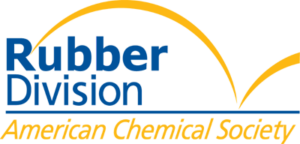The Rubber Division, ACS announces July Learning Opportunities
Akron, OH – The Rubber Division announces July Learning Opportunities. Registration now open for the events below. Members get complimentary access to all webinars and courses are only $100.
June 24-July 22 – Webinar Series: Manufacturing Mondays – Tires
*This series began June 3 but there are five left you can attend and you’ll also have access to the recordings of the first three.
July 9-12 – Webinar Series: Static, Dynamic & Fatigue Characterization Testing
July 16 – Webinar: Rubber Manufacturing Economics
July 17 – Course: An Introduction to Continuous Vulcanization
July 25 – Webinar: Overcoming Imposter Syndrome
SELF-PACED TRAINING – New to the rubber industry or maybe have some knowledge but are looking to gain even more? Do you have new hires that need a fundamental understanding of rubber technology to be successful in their roles? Basic, Intermediate & Advanced Rubber Technology self-paced training courses provide convenient learning for all levels of rubber education.
Featured training for July include:
July 9-12 – Webinar Series: Static, Dynamic & Fatigue Characterization Testing -Instructor: Paul Merda, ARDL
There are several ways to characterize the physical performance of rubber compounds, rubber components or full parts/assemblies. This webinar series seeks to highlight some of the static testing, dynamic testing and fatigue testing options that are available to aid in such characterization. The following topics will be discussed: Finite Element Analysis (FEA) Support Testing (testing on rubber, static); Fatigue Testing (testing on rubber, fatigue); Vibration Testing (testing on sub-assemblies or components, dynamic and fatigue); Dynamic Characterization (testing on components or full parts, dynamic)
July 17 – Course: An Introduction to Continuous Vulcanization – Instructor: Richard D. Strong, Elastomeric Consulting Services LLC
This course was developed for rubber industry employees who currently use Continuous Vulcanization (CV) processes and wish to expand their knowledge or those who wish to gain insights into these processes and how they can be used.
It will offer an overview of the variety of commercially viable Continuous Vulcanization processes and their strengths and weaknesses. Following that, it will take the participants into a more in-depth study of the three most common forms of CV, Liquid Curing Media (LCM), better known as the Salt Bath process, Hot Air Vulcanization (HAV) and Microwave/Hot Air Vulcanization. The emphasis will be on practical knowledge that can be utilized in production along with safety concerns that always need to be addressed. Click for full details.
Visit www.rubber.org for more information.

